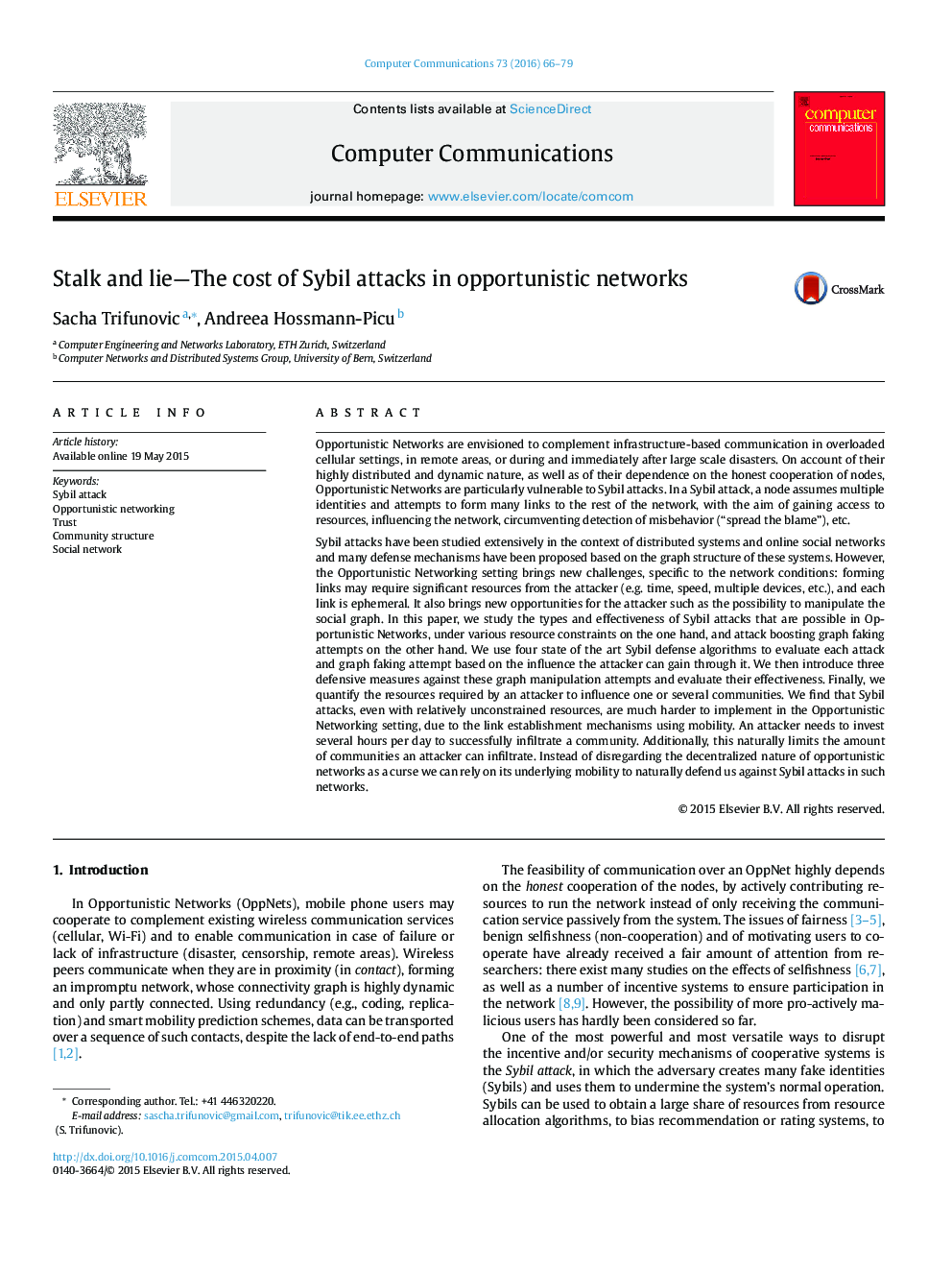| کد مقاله | کد نشریه | سال انتشار | مقاله انگلیسی | نسخه تمام متن |
|---|---|---|---|---|
| 448460 | 693571 | 2016 | 14 صفحه PDF | دانلود رایگان |
Opportunistic Networks are envisioned to complement infrastructure-based communication in overloaded cellular settings, in remote areas, or during and immediately after large scale disasters. On account of their highly distributed and dynamic nature, as well as of their dependence on the honest cooperation of nodes, Opportunistic Networks are particularly vulnerable to Sybil attacks. In a Sybil attack, a node assumes multiple identities and attempts to form many links to the rest of the network, with the aim of gaining access to resources, influencing the network, circumventing detection of misbehavior (“spread the blame”), etc.Sybil attacks have been studied extensively in the context of distributed systems and online social networks and many defense mechanisms have been proposed based on the graph structure of these systems. However, the Opportunistic Networking setting brings new challenges, specific to the network conditions: forming links may require significant resources from the attacker (e.g. time, speed, multiple devices, etc.), and each link is ephemeral. It also brings new opportunities for the attacker such as the possibility to manipulate the social graph. In this paper, we study the types and effectiveness of Sybil attacks that are possible in Opportunistic Networks, under various resource constraints on the one hand, and attack boosting graph faking attempts on the other hand. We use four state of the art Sybil defense algorithms to evaluate each attack and graph faking attempt based on the influence the attacker can gain through it. We then introduce three defensive measures against these graph manipulation attempts and evaluate their effectiveness. Finally, we quantify the resources required by an attacker to influence one or several communities. We find that Sybil attacks, even with relatively unconstrained resources, are much harder to implement in the Opportunistic Networking setting, due to the link establishment mechanisms using mobility. An attacker needs to invest several hours per day to successfully infiltrate a community. Additionally, this naturally limits the amount of communities an attacker can infiltrate. Instead of disregarding the decentralized nature of opportunistic networks as a curse we can rely on its underlying mobility to naturally defend us against Sybil attacks in such networks.
Journal: Computer Communications - Volume 73, Part A, 1 January 2016, Pages 66–79
